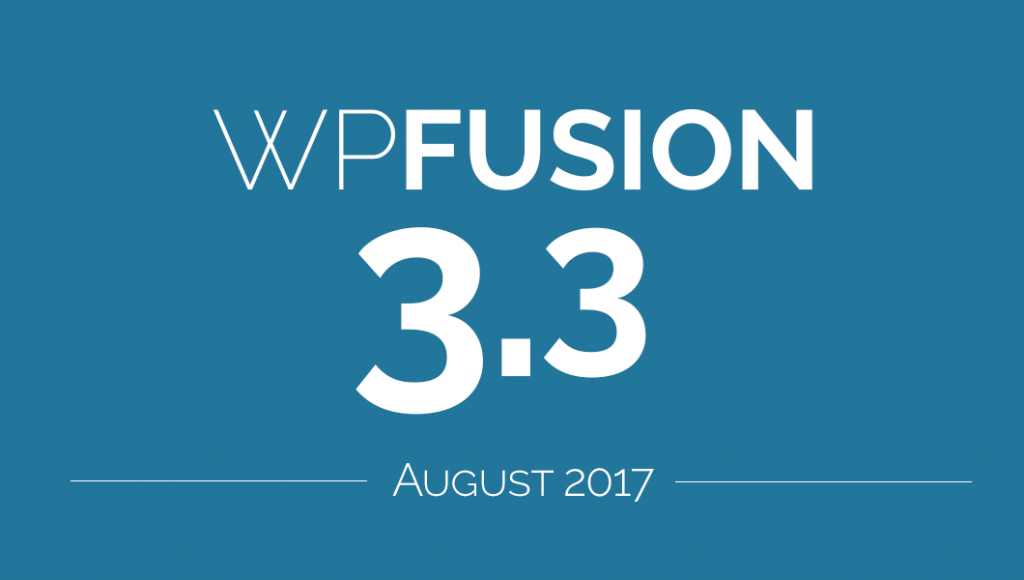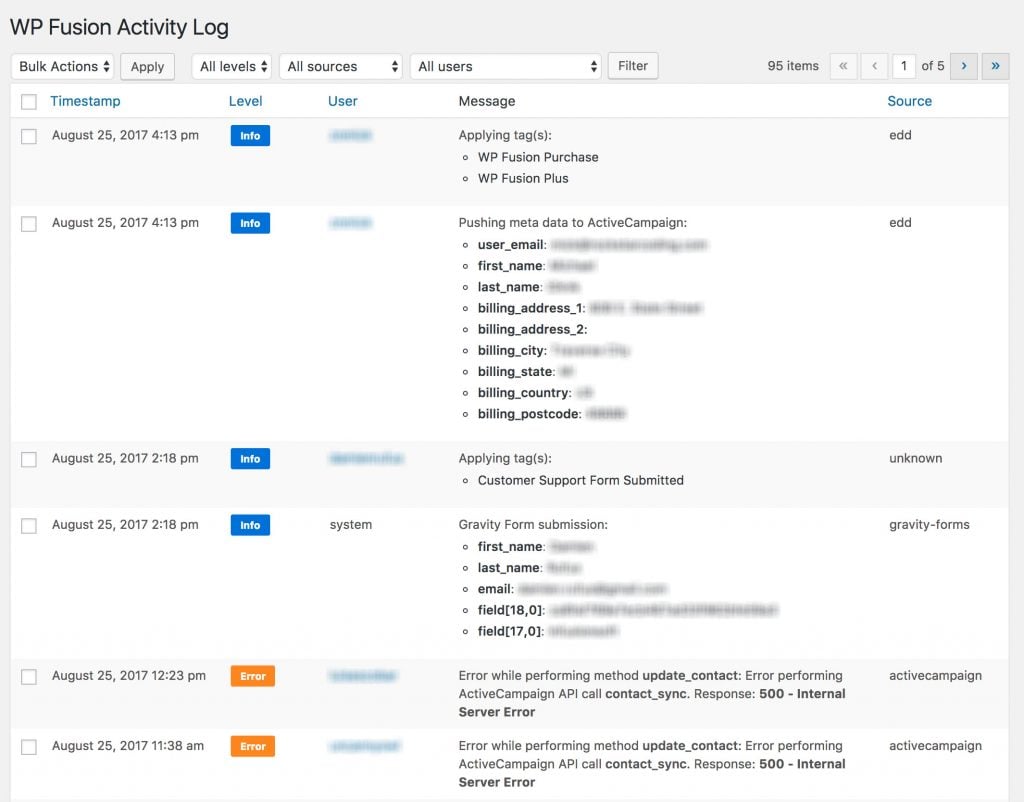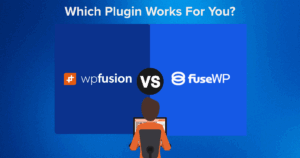Our development team took a (much needed) two months off this summer, to take a step back and spend some time focusing on the big picture concepts: what we’re doing well, what we could do better, and how we’d like to see WP Fusion evolve over the next year.
We’ve spent the month of August beginning to implement these new ideas, beginning with WP Fusion v3.3, and culminating today in version 3.3.3, which smooths out a lot of kinks from the first releases, and fully integrates the new frameworks we’ve been developing over the past month.
#Overview
This release cycle focused on performance, stability, and accountability. As we’ve added integrations and more automated processes (like linking tags to courses and membership levels to trigger auto-enrollment), it was getting increasingly difficult to track down exactly why a user was enrolled in a course, why a password reset was triggered, or when a webhook came in.
Not only is this opaque for our customers, it makes dealing with support requests that much harder when we don’t have a full picture of how WP Fusion has been configured on each individual site.
#Introducing Logging
To address this, we’ve added a new, robust logging system, which can be enabled from the Advanced tab in your WP Fusion settings. Once enabled, you’ll be able to view a history of every action WP Fusion performs on your site, what triggered that action, and helpful diagnostic information in case of an error.
For example, over the last month, ActiveCampaign has been having some issues with their API (you can keep track of their status here). Previously, a failed API request would have stopped your form from submitting, or your checkout from processing.
We’ve rewritten all of our CRM integrations to catch these errors gracefully, record them to the activity logs, and your site continues to function as if nothing’s gone wrong.
#The Logs Will
- Record every API call, the data sent, and any errors if they occurred
- Record any incoming webhooks / HTTP Posts, and show the data retrieved for that user
- Track any trigger-based actions such as automated course enrollment in LearnDash, automatic membership level assignment in Paid Memberships Pro, recurring payment failures in WooCommerce subscriptions, and any of our other integrations that include tag-based triggers
- For each action, you can see the tag that triggered the automation, as well as the originating integration
- And all reports are searchable and filterable by the severity of the message, the WordPress user, and the integration
#New Plugin Integrations
- Added integration for WooCommerce Memberships
- Added integration for Simple Membership
- Added integration for the WP Execution Plan LMS
- Added BadgeOS integration
There are also dozens of bug fixes and enhancements, more than we can cover here, but head over to our changelog to see the full details.
#Next Steps
For the next phase, we’re going to be focusing on expanding our offering of add-ons. Some projects currently in the pipeline include:
- Tag based access control for widgets
- Log in and account based triggers: apply tags on first log in, apply tags when a user hasn’t logged in for X days, and redirect users on login based on their tags
- Audio playback tracking for our Media Tools add-on
- Expanding our Ecommerce Add-on to support AgileCRM and ConvertKit
As always, your suggestions and ideas help us to know where to focus next. If there’s anything you’d like to see added or improved, just drop us a line!




